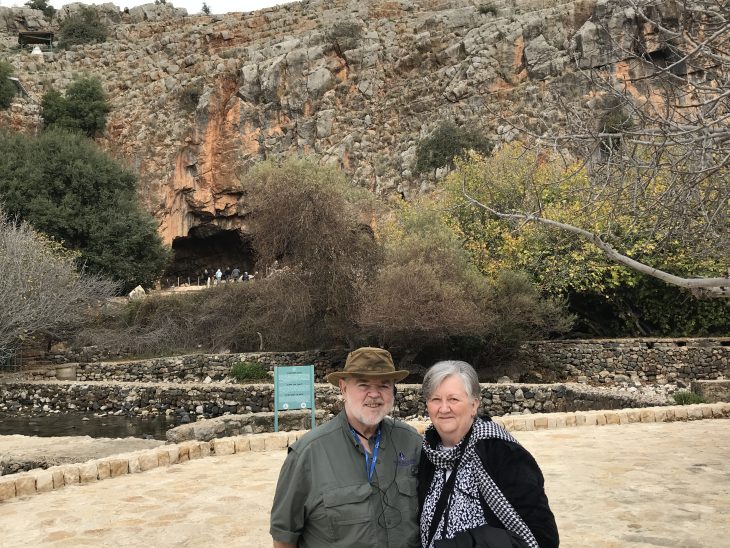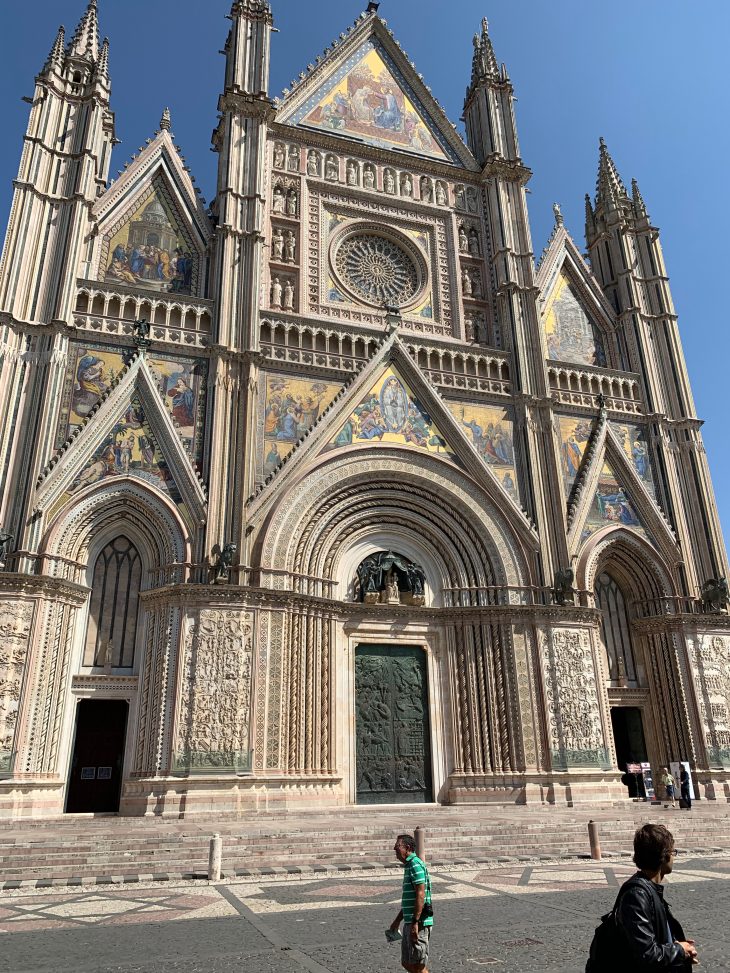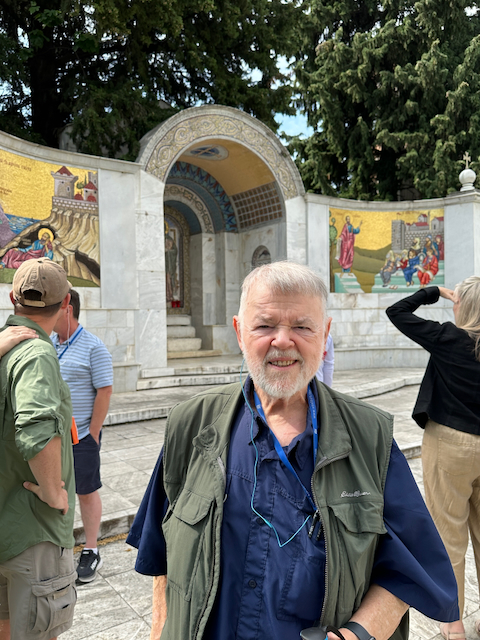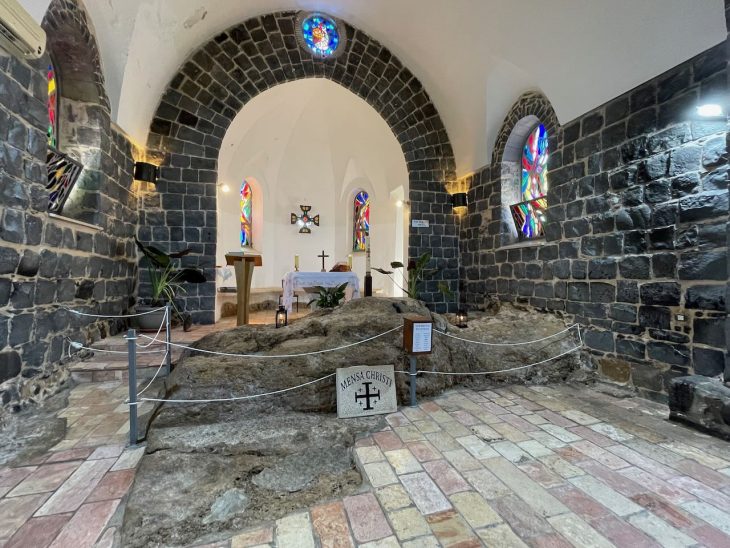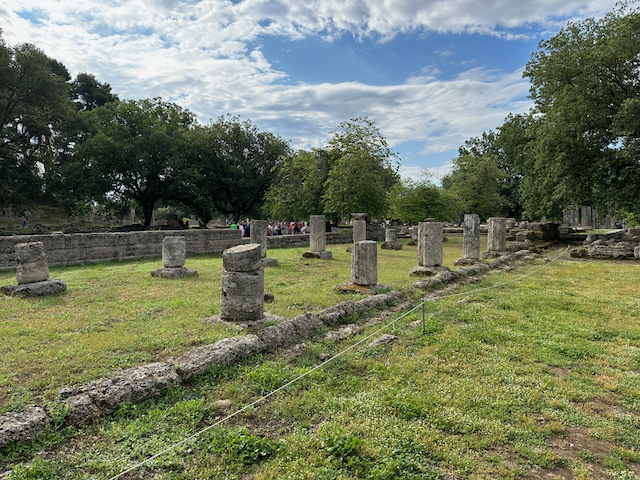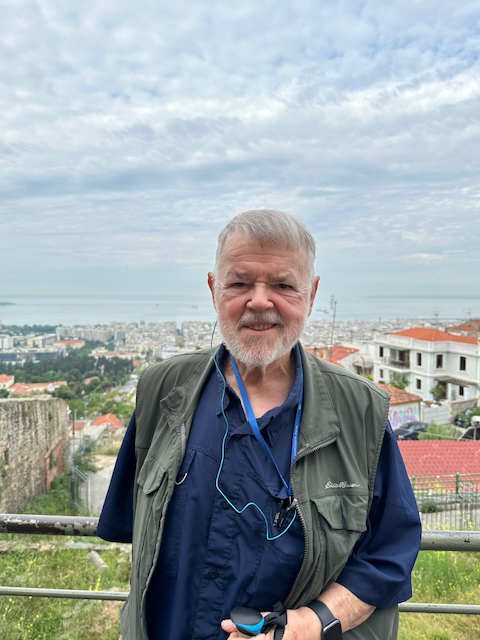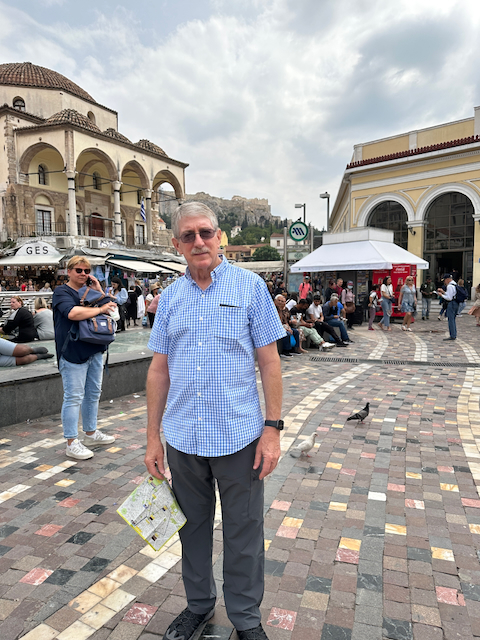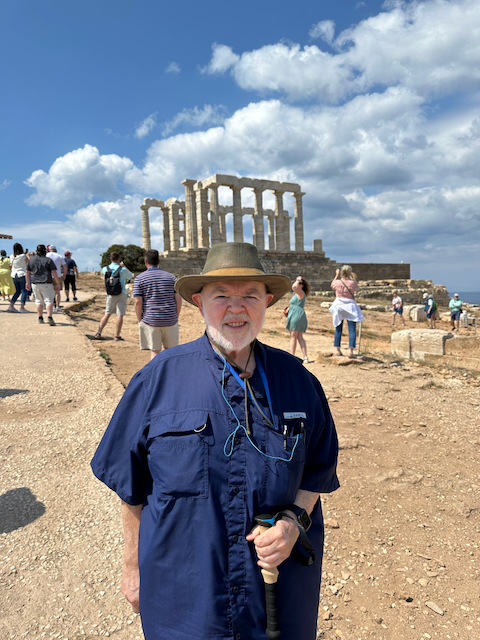Isaiah 26:3
“You will keep him in perfect peace, whose mind is stayed on You, because he trusts in You.” (NKJV)
Peace is not found in having everything right—it is found in knowing who God is. God has made Himself known by His names, and each name is a door into His character. When the world shakes, when sleep won’t come, when anxiety hovers, we must not merely seek peace—we must seek God. For peace is not a thing—it is a Person.
I. Jehovah Shalom – He Is Peace, Not Just a Giver of It – Judges 6:24 – “The Lord is Peace.”
- Gideon found peace in the face of fear.
- Peace did not come from victory—it came from encounter.
- When you don’t know what to do, remember who is with you.
II. El Roi – He Sees You in the Desert – Genesis 16:13 – “You are the God who sees.”
- Hagar wasn’t alone, though she felt forgotten.
- Peace blooms when we realize we are seen.
- He does not pass over pain—He gazes into it.
III. Jehovah Rohi – He Shepherds Every Step
Psalm 23:1–2 – “The Lord is my Shepherd… He leads me beside still waters.”
- He doesn’t drive us—He leads us.
- Still waters are found by following His voice.
- We are safe because we are near the Shepherd.
IV. El Shaddai – His Power Settles Our Fear – Genesis 17:1 – “I am Almighty God.”
- Nothing threatens the One who holds everything.
- His strength does not depend on ours.
- Rest flows from trust in His might.
V. Jehovah Jireh – Provision Brings Peace – Genesis 22:14 – “The Lord Will Provide.”
- Peace isn’t the absence of need, but the presence of provision.
- Abraham learned this on the mountain.
- The Lord provides peace through the Lamb.
VI. Jehovah Rapha – Healing is Peace Restored – Exodus 15:26 – “I am the Lord who heals you.”
- Sin, sorrow, sickness—all are addressed by His hand.
- Peace follows healing like a shadow.
- His touch goes deeper than the wound.
VII. El Elyon – Peace Reigns Because He Reigns – Psalm 57:2 – “God Most High… who performs all things for me.”
- When He is exalted, fear is diminished.
- He governs what we cannot.
- His peace rules in chaos.
VIII. Immanuel – We Are Never Alone – Matthew 1:23 – “God with us.”
- The birth of peace came in a Person.
- God did not shout peace from afar—He brought it near.
- He abides when others abandon.
IX. Jehovah Tsidkenu – Peace with God Through Righteousness – Jeremiah 23:6 – “The Lord our Righteousness.”
- We cannot make ourselves right—but He has.
- Peace with God is the ground of all other peace.
- Christ is our righteousness.
X. The God of All Comfort – Peace that Wraps the Heart – 2 Corinthians 1:3 – “The God of all comfort.”
- Comfort is more than relief—it is nearness.
- He doesn’t hand out peace—He becomes it.
- In every affliction, He sits with us.
Conclusion: The Name of the Lord Is a Strong Tower
Proverbs 18:10 – “The name of the Lord is a strong tower; the righteous run to it and are safe.”
Run to His name. Whisper His name. Cling to His name. For in His name is peace, not as the world gives—but as He alone gives.
Poems: Names of God for Peace
1. He Is Peace
Peace is not a product.
It is not bought or forced.
It is the Person of God,
who enters the chaos
and speaks stillness.
Gideon did not ask for peace.
He needed courage.
But what God gave first
was Himself—
Jehovah Shalom.
When the ground trembles,
and I don’t know what to do,
I remember what is true:
Peace is not around me—
it is in Him.
I call His name,
not to make Him come,
but to remind my soul
that He is already here—
and that is enough.
He does not hand out peace
like bread to beggars.
He sits with the broken
and says, “I AM your peace.”
So I rest.
2. The God Who Sees Me
I was not looking for Him,
but He saw me first.
In the wilderness of rejection,
El Roi watched and moved
with mercy in His eyes.
No voice called my name.
No hand reached out.
But the God who sees
came close enough to whisper—
“I see you.”
That is where peace begins—
not in answered questions,
but in the gaze of love.
I am not hidden.
I am known.
He does not need directions.
He finds me in deserts.
When others walk by,
He steps in,
and stays.
So I no longer ask,
“Does anyone care?”
Because El Roi has spoken.
And once seen by Him,
I am never unseen.
3. Still Waters
The Shepherd does not shout.
He calls softly.
He does not drive the flock.
He leads with grace
by still waters.
The world moves fast.
But He invites me
to slow down,
to lie down,
and to trust.
He feeds me peace.
He walks with me in darkness.
No enemy escapes Him.
No shadow swallows me.
He stays.
My soul is not restored
by resolution,
but by presence.
Jehovah Rohi tends me
with love.
So I stop running.
I listen again
for His step,
and I follow
to quiet waters.
4. He Will Provide
The fire was real.
The wood was ready.
Abraham walked the hill
with questions,
but also with trust.
Provision had a name:
Jehovah Jireh.
Not before the need,
not after—
but right on time.
God did not remove the test.
He provided in it.
The Lamb appeared,
and peace was born
through sacrifice.
I carry less fear
when I walk with faith.
Not because I see answers,
but because I know the God
who always sees me.
So when the mountain rises,
and my hands tremble,
I call on His name,
and I remember—
He will provide.
5. God of All Comfort
Sorrow does not scare Him.
Grief does not offend Him.
He moves toward it.
He surrounds the broken
and stays.
Comfort is not escape.
It is Presence.
It is the nearness of God
who does not explain—
He embraces.
Pain does not mean peace is absent.
It means I need a Comforter.
And He comes,
not in a flash,
but in fullness.
He walks with me
through the valley,
speaking mercy,
bringing light
when I see none.
So I welcome the tears.
Not because I enjoy them,
but because I know
who will catch each one.
The God of all comfort.
6. Healer of My Wounds
I am not just tired.
I am torn.
But He does not flinch.
Jehovah Rapha comes close
and calls me whole.
He does not rush healing.
He does not hide scars.
He kneels beside the wound.
He lays His hand on it
and waits with me.
I thought peace came after pain,
but He brings it into pain.
Healing begins with presence,
not always with relief.
He gives both.
No doctor sees deeper.
No word speaks truer.
He touches what I hide.
And still, He stays—
calling me beloved.
So I rise slowly,
not because I am strong,
but because I am held.
Jehovah Rapha restores
what fear tried to ruin.
7. The God Who Reigns
The storm is loud,
but El Elyon speaks louder.
Winds obey Him.
Time bows to Him.
Nothing is over Him.
He is not shaken
by what shakes me.
He governs the sky
and the sigh
and the silence.
His throne is above the chaos.
He does not retreat.
He does not consult fear.
He speaks, and peace walks in.
He rules.
When I cannot make sense,
He remains sure.
He performs all things for me.
Peace rests where He reigns.
I fall before His greatness.
So I breathe again,
not because the storm has passed,
but because I know the One
who sits above it all—
El Elyon, my God Most High.
8. God With Us
I was never meant
to carry this alone.
Immanuel came
to walk where I walk
and stay where I sleep.
He does not shout from heaven.
He steps into earth.
He chooses dust,
and He stays
even when I stumble.
He knows what loss feels like.
He tasted loneliness.
He is not far.
He moved in next door
and knocked on my heart.
The peace I long for
came wrapped in flesh.
God did not send comfort—
He came as comfort.
He is with me.
So I do not walk alone.
I whisper His name,
and the silence breaks.
Immanuel is here.
Peace has come near.
9. Righteousness That Covers Me
I tried to be good.
I tried to be clean.
But my hands were never enough.
Then came Jehovah Tsidkenu—
and He covered me.
I was clothed in shame,
but He gave me righteousness.
Not earned, but given.
Not my record, but His.
Not my worth, but His grace.
Peace does not come from perfection.
It comes from justification.
He declares me whole.
And I stop striving
and start standing.
The weight lifts
when I trust His name.
The guilt flees
when I see the cross
and call it mine.
So I stand today,
not proud, but secure.
The Lord is my righteousness.
And in Him,
I am at peace.
10. The God Who Wraps Me
He does not fix first.
He embraces first.
The God of all comfort
does not need my words—
He knows the weight.
He meets me low,
sits where I sit,
and stays longer than sorrow.
He wraps me
in His presence.
Comfort is not noise.
It is the hush of love.
It is the nearness
of the One who suffers with me,
and lifts me gently.
He doesn’t rush grief.
He redeems it.
He plants hope in its soil
and lets it bloom slowly—
with light.
So I do not fake strength.
I lean back into Him.
The God of all comfort
carries my ache,
and gives me peace.
11. My Dwelling Place
I do not search for peace in places.
I look for it in a Person.
El Elyon is not only high—
He is near enough to dwell in.
He is my home.
Storms may swirl around me,
but they cannot enter Him.
He surrounds me like a wall.
He shelters like wings.
And I hide in Him.
Peace is not the absence of trouble.
It is the presence of the Most High.
He keeps me in the cleft.
He anchors what shakes.
He holds what’s falling.
When I feel restless,
I remember where I belong.
Not in fear, not in striving—
but in God.
He is my dwelling place.
So I return again,
not as a guest, but a child.
He makes room for me.
And in Him,
I am at peace.
12. The Name That Stills Me
I speak His name softly,
not to call Him,
but to calm me.
There is power in whispering
what is holy.
Jesus. Peace-giver.
Jesus. Chain-breaker.
Jesus. Friend of the weary.
His name breaks the night.
His name carries peace.
I do not need long prayers.
I need the right name.
The One who sits at the right hand,
and intercedes.
He knows. He comes.
In the swirl of questions,
I anchor my heart
on what cannot move.
The name above every name—
Jesus, my peace.
So I breathe and say it again.
Not as ritual, but as rest.
The name that stills the storm.
The name that fills the silence.
Jesus. Only Jesus.
10-Day Devotional Plan: The Names of God for Peace
Day 1: Jehovah Shalom – The Lord Is Peace
Judges 6:24 — Reflect on how peace is not the absence of war, but the presence of God. Invite Him into your anxiety.
Day 2: El Roi – The God Who Sees
Genesis 16:13 — You are not overlooked. Ask the Lord to help you trust that He sees your situation fully.
Day 3: Jehovah Rohi – The Lord Is My Shepherd
Psalm 23:1–2 — Let the Shepherd lead you beside still waters today. Meditate on His guidance and protection.
Day 4: El Shaddai – God Almighty
Genesis 17:1 — What feels too big for you today? Rest in the strength of the Almighty.
Day 5: Jehovah Jireh – The Lord Will Provide
Genesis 22:14 — Trust Him to provide not only your needs but the peace that comes with His timing.
Day 6: Jehovah Rapha – The Lord Who Heals
Exodus 15:26 — Bring your wounds to Him—physical, emotional, spiritual. Wait for His healing presence.
Day 7: El Elyon – The Most High God
Psalm 57:2 — Declare that nothing is above Him. Rest in His sovereign care.
Day 8: Immanuel – God With Us
Matthew 1:23 — He is not distant. Invite His nearness into your quiet or chaotic moments.
Day 9: Jehovah Tsidkenu – The Lord Our Righteousness
Jeremiah 23:6 — You are clothed in Christ. Let that truth quiet your striving and shame.
Day 10: The God of All Comfort
2 Corinthians 1:3 — Receive His comfort today. Let Him sit with you, not just solve things for you.
Prayer: Calling Upon the God of Peace
Father, I come to You needing the peace only You can give. You are Jehovah Shalom—peace itself—and I call upon You now. Let Your presence settle my anxious thoughts. You are not just a concept of comfort, You are my refuge in every storm. You step into my fear, not with rebuke, but with rest. And I thank You.
When I feel invisible, You are El Roi—the God who sees. You do not overlook my heart. You know every silent plea and quiet tear. Jehovah Rohi, be my Shepherd today. Lead me out of worry and into still waters. El Shaddai, You are the Almighty. You carry what I cannot. When I am weak, You remain strong.
Jehovah Jireh, You are my Provider. Not just of what I want, but what I need. Give me the provision of peace. Heal me, Jehovah Rapha, from the wounds no one else can see. And El Elyon, rule over the storms in my soul. You are greater than all.
Immanuel, thank You for staying close. You are not just a visitor—you are with me in all things. Jehovah Tsidkenu, my righteousness, let me stop striving to be enough. Let me rest in the righteousness of Christ. And God of all comfort, hold me close. Wrap my heart in Your mercy.
I run to Your name, Lord. I trust in who You are. I praise You—not only for what You’ve done, but for who You are. You are peace. And in You, I am whole. In Jesus’ name, Amen.


